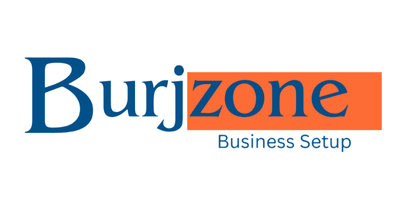Our Blog
Home / Blog
Internal vs. External Audit in UAE: Differences and Use Cases
As the UAE’s business and regulatory landscape matures, companies operating in Dubai, Abu Dhabi, Sharjah, and other Emirates must not only comply with financial laws but also ensure operational efficiency. This has made both internal and external audits essential tools—not just for compliance but also for business improvement.
In this article, we’ll break down the key differences between internal and external audits in the UAE, when each is required, and how businesses in various sectors can benefit from both.
1. What Is an Internal Audit?
An internal audit is conducted by an organization’s in-house team or outsourced professionals to evaluate internal controls, risk management, and governance processes. It focuses on improving operations and preventing risks.
Key Features:
Conducted periodically (monthly, quarterly, or annually)
Reports to company management or board of directors
Not required by law, but highly recommended for proactive risk control
Helps detect fraud, inefficiencies, and regulatory gaps
2. What Is an External Audit?
An external audit is an independent examination of financial statements, usually conducted annually by a registered audit firm. It ensures compliance with accounting standards and UAE tax and regulatory requirements.
Key Features:
Required for many entities, especially in Dubai Mainland, free zones like DMCC, JAFZA, and Abu Dhabi Global Market (ADGM)
Results in an audited financial statement submitted to authorities or banks
Provides assurance to investors, lenders, and regulators
Mandatory for license renewal in several UAE jurisdictions
3. Key Differences at a Glance
| Aspect | Internal Audit | External Audit |
|---|---|---|
| Purpose | Improve internal processes | Verify financial accuracy and compliance |
| Conducted by | In-house team or outsourced consultants | Independent registered auditors |
| Reported to | Management/Board | Stakeholders, Regulators |
| Regulatory Requirement | Optional (but encouraged) | Often mandatory |
| Scope | Operational, financial, and risk-based | Focused on financial statements |
4. When Do UAE Businesses Need an External Audit?
External audits are often required by:
Free zone authorities (e.g., DMCC, RAKEZ, SHAMS, DAFZA) for license renewals
Banks and investors for loan and funding applications
FTA (Federal Tax Authority) for tax compliance verification
ESR (Economic Substance Regulations) or AML compliance assessments
5. When Is Internal Audit Most Useful?
Internal audits are especially valuable for:
Rapidly growing SMEs in Dubai Silicon Oasis, Sharjah Industrial Areas, or Fujairah Free Zone
Businesses with complex inventory or cash flow operations
Companies preparing for external audits or regulatory inspections
Firms looking to improve internal fraud detection and control
6. Combining Both for Full Compliance and Growth
Many successful UAE firms use both internal and external audits strategically. Internal audits help you clean up your processes before external auditors arrive. This ensures:
Fewer compliance issues
Timely financial closure
Greater investor confidence
Better preparedness for corporate tax audits in 2025
7. Choosing the Right Audit Partner
For internal audits, choose a consultant with industry-specific expertise.
For external audits, ensure your firm is registered with relevant UAE authorities and understands IFRS standards, UAE VAT, and corporate tax compliance.
Final Thoughts
Whether you’re based in Business Bay Dubai, Sharjah Free Zones, or Abu Dhabi Mainland, understanding the distinction between internal and external audits is key to protecting your business and remaining compliant. In 2025 and beyond, businesses that take audit readiness seriously will have a competitive edge in the UAE’s evolving market.
#InternalAuditUAE #ExternalAuditDubai #AuditCompliance2025 #SharjahFreezoneAudit #DubaiBusinessRisk #UAEAccountingStandards #TaxAuditUAE #FinancialReportingDubai #AuditReadinessAbuDhabi #DMCCAuditRequirements
